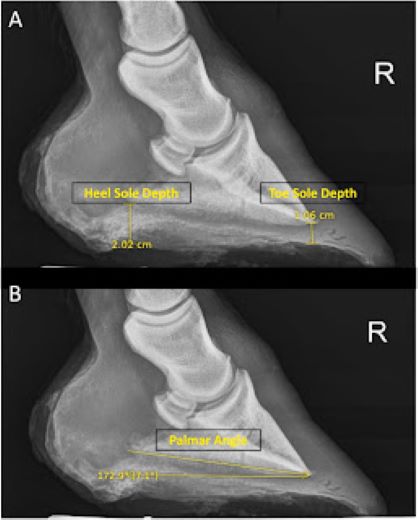Managing Thin Soles in Performance Horses
From Equine Science Update:
Thin soles and poor palmar angles are common issues in performance horses, significantly impacting their comfort, movement, and hoof health. Horses with thin soles are more prone to lameness due to increased sensitivity, pain, bruising, and a higher risk of developing solar abscesses.
Managing thin soles can be challenging for farriers and hoof care professionals. Many owners turn to protective footwear, while supplements rich in biotin, methionine, and zinc are often used to promote hoof growth.
One potential therapy gaining attention is Pulsed Electromagnetic Frequency (PEMF) therapy. Widely used in equine therapy, PEMF promotes healing, reduces pain, and supports overall health and performance. Could it also play a role in managing thin soles?
A recent pilot study led by Madelyn Matz, published in the Journal of Equine Rehabilitation, explored the effect of PEMF therapy on hoof parameters in ten adult horses of various breeds. The horses were divided into a PEMF group (n=6) and a control group (n=4).
All horses underwent standard hoof trimming the day before the study began, with no further farriery work during the trial. Radiographs were taken before treatment and again 30 days later, measuring sole depth and palmar angles (see figure).
The PEMF group received treatment at a frequency of 22 Hz for ten minutes per session, applied to both hooves three times a week (on Monday, Wednesday, and Friday) over a 30-day period, while the control group received no intervention.
The study found no significant differences between the PEMF and control groups in terms of sole depth under the apex of the proximal phalanx or palmar angles. However, there was a trend towards increased sole depth beneath the distal processes of the right hoof in the PEMF-treated horses.
While this pilot study showed no significant improvement overall, the trend towards increased sole depth suggests that PEMF therapy may offer some benefit.
The researchers concluded that further investigation is warranted, as PEMF therapy could become a non-invasive option for managing thin soles in horses.
For more details, see:
M.M. Matz, D.L. Alexander, J. Moore, C.E. Fedorka,
Evaluating the effect of pulsed electromagnetic field (PEMF) therapy on sole depth of the equine hoof: A pilot study,
Journal of Equine Rehabilitation, (2024) Vol 2,100010,











